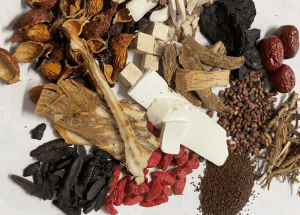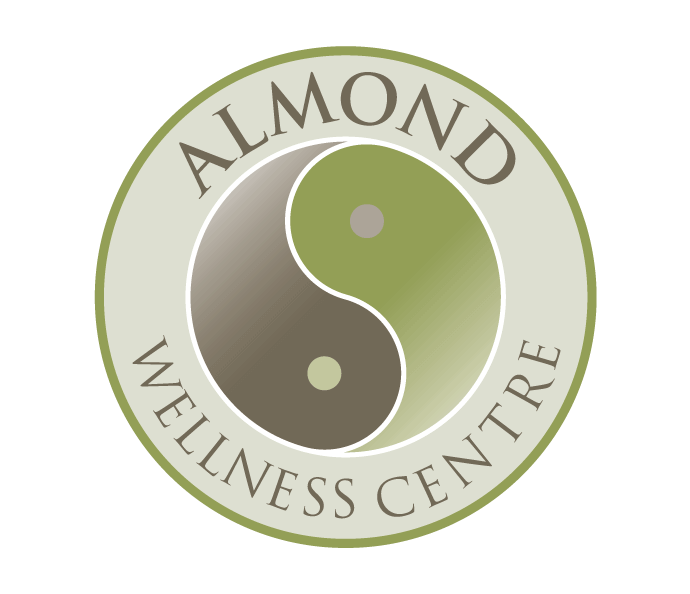Acupuncture Chinese Medicine Cancer Support
Want to know if acupuncture Chinese medicine help your cancer treatment? Call 88021519 or send your inquires here
Cancer treatment support with acupuncture Chinese medicine
Almond Wellness Centre provides natural therapies as part of our comprehensive cancer support management in Melbourne. Our range of complementary approaches includes acupuncture, Chinese herbal medicine, and personalised diet and lifestyle advice. These therapies are designed to complement and support your ongoing cancer treatment and management.
Research has demonstrated the potential benefits of combining Chinese herbal medicine with chemotherapy. Studies have shown that this combination can significantly reduce leucopenia, nausea, vomiting, thrombocytopenia, and anaemia in patients with non-small cell lung cancer (NSCLC), gastric cancer, and liver cancer. Additionally, it has specifically shown significant reduction in nausea and vomiting for liver cancer patients. Overall, Chinese herbal medicine shows promise in improving leucopenia, thrombocytopenia, and anaemia across various types of cancer.
At Almond Wellness Centre, we prioritise evidence-based practices and work closely with our clients to create personalised treatment plans. Our goal is to provide comprehensive support that enhances your well-being and complements your conventional cancer treatment. We recommend consulting with our qualified practitioners to discuss how our natural therapies can contribute to your cancer support management.
How Traditional Chinese Medicine (TCM) support cancer treatment?
Traditional Chinese medicine (TCM) offers natural alternative approaches to support cancer treatment. Acupuncture and Chinese herbal medicine (CHM) can be beneficial for cancer patients by reducing certain symptoms and minimising associated side effects. Research has indicated the following findings:

Reduction of stress-related emotional symptoms and increased energy: Acupuncture and Chinese medicine can help alleviate emotional symptoms associated with stress and enhance overall energy levels. These modalities have the potential to contribute to an improved quality of life for cancer patients.
Enhancement of overall quality of life: TCM approaches can improve the overall quality of life for individuals undergoing cancer treatment. By addressing symptoms, reducing side effects, and providing support for emotional well-being, TCM can contribute to a more positive experience during the cancer journey.
What do acupuncture Chinese medicine do for cancer management
Acupuncture and Chinese medicine offer potential support for cancer management, providing alternative natural approaches for:
Cancer-related fatigue: Acupuncture and Chinese medicine modalities may assist in managing fatigue associated with cancer or cancer treatments, helping to improve energy levels and overall well-being.

Management of treatment side effects: Acupuncture and Chinese medicine techniques may help alleviate side effects of chemotherapy or other cancer treatments, such as nausea, vomiting, low white blood cell count (WBC), anemia, and low platelet count.
Sleep problems related to stress and anxiety: Acupuncture and Chinese medicine can aid in managing sleep difficulties associated with stress and anxiety, potentially improving the quality of sleep for cancer patients.
Enhancement of overall quality of life: Through the various approaches offered by acupuncture and Chinese medicine, there is the potential to improve the overall quality of life for individuals undergoing cancer treatment. This may include addressing physical symptoms, managing treatment side effects, and supporting emotional well-being.
It is important to consult with qualified practitioners of acupuncture and Chinese medicine who has special interest and experience in cancer support management to determine the most suitable treatment options for individual needs. These approaches should always be used in conjunction with conventional cancer treatments and under the guidance of healthcare professionals.
Almond Wellness Centre Coburg and Ringwood clinics
Almond Wellness Centre located in Victoria’s Coburg and Ringwood area, is a multidisciplinary clinic dedicated to promoting wellness. At our clinics, we emphasise the importance of comprehensive healthcare that considers the entirety of an individual. Our approach involves treating each person as a unique individual, taking into account their lifestyle, diet, environment, emotions, and attitude.
As each person is different, if you or someone you care about is having treatment for cancer and would like to explore the potential benefits of Chinese medicine acupuncture, please don’t hesitate to contact us. Our chief practitioner Dr. Richard Zeng and other fully qualified registered acupuncture Chinese medicine practitioners in both Coburg clinic and Ringwood clinic are here to provide information and assistance. We will assess your specific condition, take into account your medical history, and develop a treatment plan tailored to your needs.
Researches – acupuncture Chinese medicine cancer treatment support
Effectiveness of Chinese Herbal Medicine for Cancer Palliative Care: Overview of Systematic Reviews with Meta-Analyses
A comprehensive analysis of systematic reviews with meta-analyses was conducted to assess the effectiveness of Chinese herbal medicine (CHM) in cancer palliative care. The research, published in Science Reports in 2015, critically evaluated and summarised the clinical evidence regarding CHM for cancer palliative care. The study aimed to provide a comprehensive overview of available evidence to inform clinicians, cancer patients, and policymakers, while also identifying methodological limitations in existing systematic reviews and guiding future research in this field.
The evidence obtained from the overview indicated that the combination of CHM and chemotherapy had significant benefits in reducing leucopenia, nausea, vomiting, thrombocytopenia, and anaemia in patients with non-small cell lung cancer (NSCLC) and gastric cancer. Furthermore, it was found to significantly alleviate nausea and vomiting in liver cancer patients. Overall, CHM demonstrated potential for improving leucopenia, thrombocytopenia, and anaemia across various types of cancer.
The analysis also revealed favourable therapeutic effects of CHM in enhancing the quality of life among cancer patients. No serious adverse effects were reported in any of the included studies. The evidence suggests that CHM could be considered as an option for improving the quality of life in patients receiving palliative care. However, it remains unclear whether CHM has an impact on overall survival or the reduction of therapy-related toxicities.
This research provides valuable insights into the potential benefits of CHM in cancer palliative care and highlights the need for further investigation. The findings contribute to the existing body of knowledge and offer guidance for clinicians, patients, and researchers in making informed decisions regarding the integration of CHM in cancer care.
An overview of systematic reviews was conducted to evaluate the effectiveness of acupuncture and related therapies in palliative care for patients with any type of cancer. The analysis included 23 systematic reviews, and the methodological quality of these reviews, assessed using the Methodological Quality of Systematic Reviews Instrument, was found to be satisfactory.
The findings from the systematic reviews provide evidence supporting the therapeutic effects of acupuncture in managing cancer-related fatigue, chemotherapy-induced nausea and vomiting, and leucopenia in patients with cancer. These results highlight the potential benefits of acupuncture as a complementary therapy in palliative care for cancer patients.
The comprehensive analysis of the systematic reviews enhances our understanding of the effectiveness of acupuncture and related therapies in improving the well-being and symptom management of individuals with cancer. The findings emphasize the potential role of acupuncture in providing supportive care for cancer patients and encourage further research in this area.
Other researches
In a study [PubMed Abstract] conducted by investigators from Memorial Sloan Kettering and published in the Journal of Clinical Oncology (April 2010), the effectiveness of acupuncture in reducing pain and dysfunction in individuals with head or neck cancer who underwent surgical dissection of lymph nodes was examined. The study involved 58 patients experiencing chronic pain or dysfunction due to neck dissection. The participants were randomly assigned to two groups: one receiving weekly acupuncture sessions and the other receiving standard care, including physical therapy and pain and anti-inflammatory medication, over a four-week period.
The study revealed that the group receiving acupuncture experienced significant reductions in pain and dysfunction compared to the group receiving standard care. Additionally, individuals in the acupuncture group reported significant improvement in xerostomia, an extreme dry mouth condition often experienced by patients receiving adjuvant radiation therapy.
Another study published in the Journal of Clinical Oncology (February 2010) focused on 50 women with hormone-receptor positive breast cancer. The participants were divided into two groups, with one group receiving 12 weeks of acupuncture and the other group receiving treatment with Effexorvenlafaxine, a medication.
Both groups demonstrated significant decreases in hot flashes, depressive symptoms, and other quality-of-life symptoms. However, women in the Effexorvenlafaxine group experienced a recurrence of symptoms approximately two weeks after discontinuing the drug therapy, while women in the acupuncture group experienced a longer duration before symptom recurrence (15 weeks). Furthermore, the acupuncture group reported no significant side effects during treatment, while the Effexorvenlafaxine group experienced 18 instances of adverse effects, including nausea, dry mouth, dizziness, and anxiety.
Electroacupuncture for fatigue, sleep, and psychological distress in breast cancer patients with aromatase inhibitor-related arthralgia: a randomized trial.
In a study in 2014 [PubMed Abstract] a randomised controlled trial was conducted to assess the effects of an 8-week course of electroacupuncture (EA) compared to a waitlist control (WLC) group and a sham acupuncture (SA) group. The participants were postmenopausal women with breast cancer who self-reported joint pain caused by aromatase inhibitors (AIs).
The findings of the study indicated that compared to usual care, EA resulted in significant improvements in fatigue, anxiety, and depression. On the other hand, SA only showed improvement in depression among women experiencing AI-related arthralgia. These results suggest that EA may offer beneficial effects in managing various symptoms such as fatigue, anxiety, and depression, while SA primarily improves depressive symptoms in postmenopausal women with AI-related joint pain.
This study highlights the potential advantages of EA as a treatment option for managing symptoms associated with AI-related joint pain in breast cancer patients. Further research is warranted to explore the specific mechanisms and long-term effects of EA in this population.
Herbal medicine for depression and anxiety: A systematic review with assessment of potential psycho-oncologic relevance.
Phytother Res. 2018 May;32(5):865-891.
In a comprehensive search across multiple databases, including PubMed, Allied and Complementary Medicine, Embase, and Cochrane, researchers identified single-herb medicines that show potential for further investigation in cancer patients. They focused on randomised controlled trials conducted between 1996 and 2016, extracting data only from studies involving single herbs and excluding those with known interactions with cancer treatments. A total of 100 articles involving 38 botanicals met their selection criteria.
The findings revealed that 45% of the studies reported positive outcomes, demonstrating that these herbal medicines had fewer adverse effects compared to conventional medications. Based on the available data, specific herbs such as black cohosh, chamomile, chasteberry, lavender, passionflower, and saffron showed promise in alleviating symptoms of anxiety or depression, and exhibited favourable risk-benefit profiles when compared to standard treatments. These herbs have the potential to benefit cancer patients by reducing the burden of medications and their accompanying side effects. However, it is important to note that larger, well-designed clinical trials are necessary to validate these findings and further evaluate their relevance in psycho-oncology.
The identification of these potential herbs opens avenues for future research and the development of evidence-based interventions to support the mental well-being of cancer patients. It is crucial to conduct rigorous studies to establish the safety, efficacy, and optimal usage of these herbs before making recommendations for their use in clinical practice.
